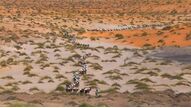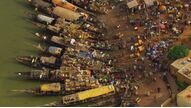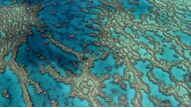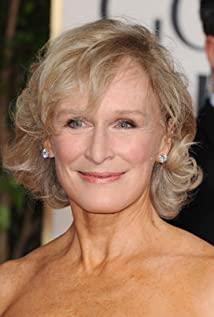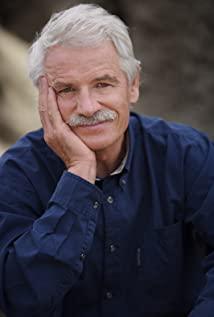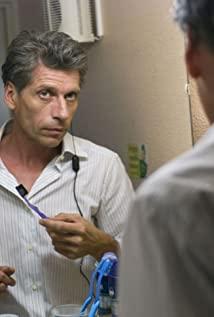The phrase "The engine of life is linkage" lingered in my ears for a long time after watching the entire documentary, which made me ponder - what is the engine of life linkage? Life is a miracle of the universe. From the time when liquid water gave birth to the simplest life forms, life on earth has undergone four billion years of long, complex and miraculous evolution, and finally human beings were born. The whole creature is a huge organism, interconnected and interdependent with each other, and each creature performs its own role, "there is nothing superfluous or harmful", one can't help but feel that the great creator has created this incredible harmony - until Smart humans enter the plot. But no matter how clever human beings are, they cannot escape the laws of nature; and the most sacred law of nature is that "everything is connected" - this is the truth that the entire documentary hopes to wake up mankind the most.
Look at the hills riddled with holes, the depleted rivers, the shattered and melted ice sheets... How selfish and arrogant you humans are for your ever-expanding desires and needs, "I" can't help but feel injustice and arrogance for other living beings. Sad and indignant; however, "I" soon saw that the hurricane was rampant, the fishery was depleted, the land was dry... You human beings have suffered the consequences, how small and pathetic your original arrogance seemed. From this aspect, human beings bear "original sin", regardless of whether God exists or not; human beings, when will you wake up from the nightmare of "I am the only one"! This documentary adopts an aerial photography perspective throughout the whole process, and uses the second person to refer to human beings, as if a god is talking to the viewer; the "you" in this sentence is inserted into the viewer's conscience like a sharp sword, and this sharp torture prompts the viewer to Jump out of the circle of "anthropocentrism" and complete self-observation and awakening.
The earth is the home of all things in nature, and human beings are not qualified to be its sole master. Before, our ancestors had always had a benevolent and reverent heart for all things in nature, but now... there is a passage in the documentary that deeply moved me, it said: "It took the earth more than four billion years to create trees; In the chain of species, trees are supreme, perfect living sculptures. They defy gravity, they are the only natural element that is eternally oriented towards the sky." Well, "perfect living sculpture", which is what I have so far The most beautiful hymn to trees I have ever heard! Yes, isn't the ancient and vigorous vitality contained in trees the spiritual incarnation of natural beauty and harmony? Sadly, however, it has been so long that we moderns have lost this ability to empathize with the spirit of all things. Of course, what I want to talk about here is by no means the return of primitive religions; rather, if we look at nature with reverence, sympathy, and aesthetics apart from utility, people may discover a beautiful new world that surprises them. The world actually exists now, but we see it as a desert.
In addition, it is self-evident that the earth is the homeland of all mankind, regardless of race, country, rich or poor. However, the rapid plundering and rapid expansion of modern industrial civilization has not only caused the extinction of many animals and plants on the earth, but also caused some poor human beings to be displaced and turbulent, while others enjoy this poisoned wine. How long can you be happy with the honey water?
There are two places in the film that shocked me the most: one is Haiti and the other is Dubai.
Haiti is the poorest region in the world today, and you may not dare to imagine that this place was once known as the "Pearl of the Caribbean Sea", with dense and prosperous rainforests and abundant natural resources; but due to excessive deforestation and mining of minerals, Haiti has gradually It has become a "barren land", and natural disasters such as mudslides, hurricanes, and earthquakes have become more and more frequent, causing the people to live in poverty, and the poor even live on the soil; poverty has further brought about social unrest - the whole country seems to have fallen into a "black hole", Hard to see the light of day. Haiti is definitely a typical example: many poor countries survive as raw materials for developed countries, but this has not brought them technological development and social prosperity; on the contrary, once their resources are emptied, they are like "abandoned shoes" The general economy quickly fell into trouble; what's worse, the "sequelae" caused by extensive development and over-development, which afflicted future generations like a "nightmare". According to Wallerstein's "World System Theory", the lack of resources and ecological crisis that many backward countries are suffering from are rooted in the inequality of the global economic system! Thinking of the environmental crisis in rural China discussed earlier, isn't the root cause also lies in the inequality of the "urban-rural dual system"? !
Instead, take a look at Dubai, the world's most gold-filled city. This city, which claims to make the "impossible" possible, used the rolling oil wealth as a driving force to build the world's tallest buildings, and reclaimed the sea on a large scale to build islands at all costs; the Middle East, which earned huge wealth by exporting oil, Chasing the life of the developed countries in the West, but this money comes so easily that wealth has become a naked show, and profligacy has become a luxury comparison - one can't help but see the sickly pale in the dazzling golden light, When the day of scarcity of oil comes, will this city built on the desert fall into a "mirage"; to put it a bit bigger, isn't the entire modern industrial civilization building in such a dilemma? It's just that how many people are willing to face this problem head-on in the prosperity of drunken money fans.
The poverty of Haiti and the glitz of Dubai, in my opinion, are contrary to the way of nature, and there is an "evil" ugliness behind them. Why is this so? The naked answer is unrestrained desire! Relying on "iron" and "oil", the West, which took the lead in entering the developed society, has established a set of "success templates" around the world that are envied by the world. There are many high-rise buildings, traffic flow, bright lights in cities, and people live in extreme material conditions. A rich, "consumer-first" life, as if the joy never ends. Just to support this way of life requires a large and rapid consumption of energy and resources, so there must be plunder from those relatively backward places (referring to the backwardness of capital economy, not the backwardness of civilization); one of the means is to rely on The second is to show off and display this "success template" - the former triggers fear, the latter stimulates desire, from fear to desire, from passivity to internalization, the backward regions are gradually incorporated into the system of the modern capitalist market, and they become The "marginalized" part - the "desire" of Western modern civilization also spreads like cells, eroding the value of other civilizations. And what we must face is that the rapid expansion of this "desire" is dangerous, and it has overwhelmed the earth's homeland. People in many places have begun to taste the "bad fruit", and many original "beautiful dreams" have been shattered.
Where is the way out? Homes riddled with holes are heart-wrenching, terrifying, and depressing, but "let's not just stare at what we've lost, but see what we still have", this is another respectable place in this documentary. I couldn't agree more with this view. At present, there are at least three ways out: one is to change people's belief in "materialism is supreme", to advocate green life, and to encourage diverse values and outlooks on life. For example, we can rediscover the wisdom of survival from the traditional philosophy of our ancestors; The second is that the state should attach importance to the legislation and judiciary of environmental protection, the society should establish more environmental protection organizations and NGOs, and citizens should pay attention to environmental protection issues and actively participate in the environmental protection movement; the third is how to break the economic and political inequality in the world. The system, how to prompt the world to join hands to deal with the crisis - although this is not easy, human desires, selfishness, prejudice, the stubbornness and complexity of the system, and other factors will become obstacles to progress. But when you see the extinction of a string of species, and see people struggling on land with frequent disasters, will you be unbearable and sad? If the answer is yes, this is the hope of humanity. Moreover, the means of mass education, mass communication, and technological innovation developed in modern society can greatly help human beings to build a fairer and more harmonious world.
"Everything is linked." There is only one home; we breathe together, we share destiny.
View more about Home reviews



